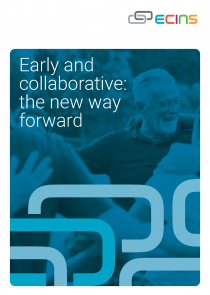By Shelley Ward, Operation Farmington Project Officer, Cambridgeshire Constabulary
Operation Farmington is Cambridgeshire Constabulary’s High Demand project to provide an improved response to persons that are high demand on police.
Operation Farmington aims to reduce police time spent dealing with incidents by supplying a better assessment of need. It offers Police Officers the opportunity to understand the historic and current needs of high demand individuals and to develop an understanding of the challenges faced by each agency involved in the person’s care. This aim is achieved through the provision of secure appropriate multi-agency information sharing to aid police decision making when responding to calls for service.
Op Farmington Project Officer, Shelley Ward who is part of Cambridgeshire Constabulary’s Partnership and Operational Support Drugs and Alcohol Policy & Practice Team spoke to Empowering-Communities about the project and how it delivers its objective of ‘The right care at the right time from the right service’.
Shelley said “We use ECINS as the information sharing platform to manage a cohort of 160 people. The information that we share on ECINS enables us to develop a Police Response Plan or a Management Care Plan for the individuals we are working with.
“Every agency involved in this project is signed up to ECINS. The larger organisations, such as the Drug and Alcohol services, register themselves and we give them access to reports and profiles so that they can view all the relevant information in realtime.
“The Care Plans are developed and kept on ECINS and from there we are able to provide direction to other agencies and organisations involved in service provision such as custody, hospital doctors and nurses, prison doctors and nurses and social workers. The purpose of the project is to ensure that the right care is put in place by the right service at the right time – we are not the right agency to support these people but in undertaking the proper evaluations, assessessments and reassessments we can ensure that the proper interventions are made by our service support network.
“We have a very wide support network, currently our partnership includes mental health services, drug and alcohol services, probation, solicitors, housing, adult social care, GPs, anti-social behaviour leads, local authorities and police.
“In addition to the electronic sharing of information the project involves professionals meeting face to face.
“Quite often individuals are high demand to the police because other agencies have not yet come into contact with them, they have become disengaged or got lost in the system. We get around 4 or 5 offences each week so before we meet we ask all professionals to get up to speed on the cases on E-CINS so that when we get together everyone is fully informed and come prepared with questions. It really helps to save time as there is no need to trail through case histories.”
How the process works:
Management of ECINS
A monthly review meeting is held by the Operation Farmington team to review all processes.
Using the ECINS traffic light system profiles are reviewed by Police and other multi-agency teams. The persons whose profiles are in the Red cause the most demand and impact on police resources.
ECINS Key
RED = Person will be proactively worked with.
AMBER = Intervention is in place and person will still be monitored (if required due to change or escalation will be moved back to RED)
GREEN = Person is stable. If in GREEN for 1 year the profile will be archived on E-CINS.
BLUE = Person is in Prison – they will be monitored as per RED.
Professional meetings are held to support the care of the person and using the E-CINS profile a Multi-Agency Care Plan and/or a Police Response Plan can be developed.
“By utilising ECINS as the data sharing platform we can ensure that support and treatment will be at the heart of all decisions made regarding any follow up care that may be required. Clear information is provided on ECINS to inform access to alternative solutions to meet the needs of the individual.”


